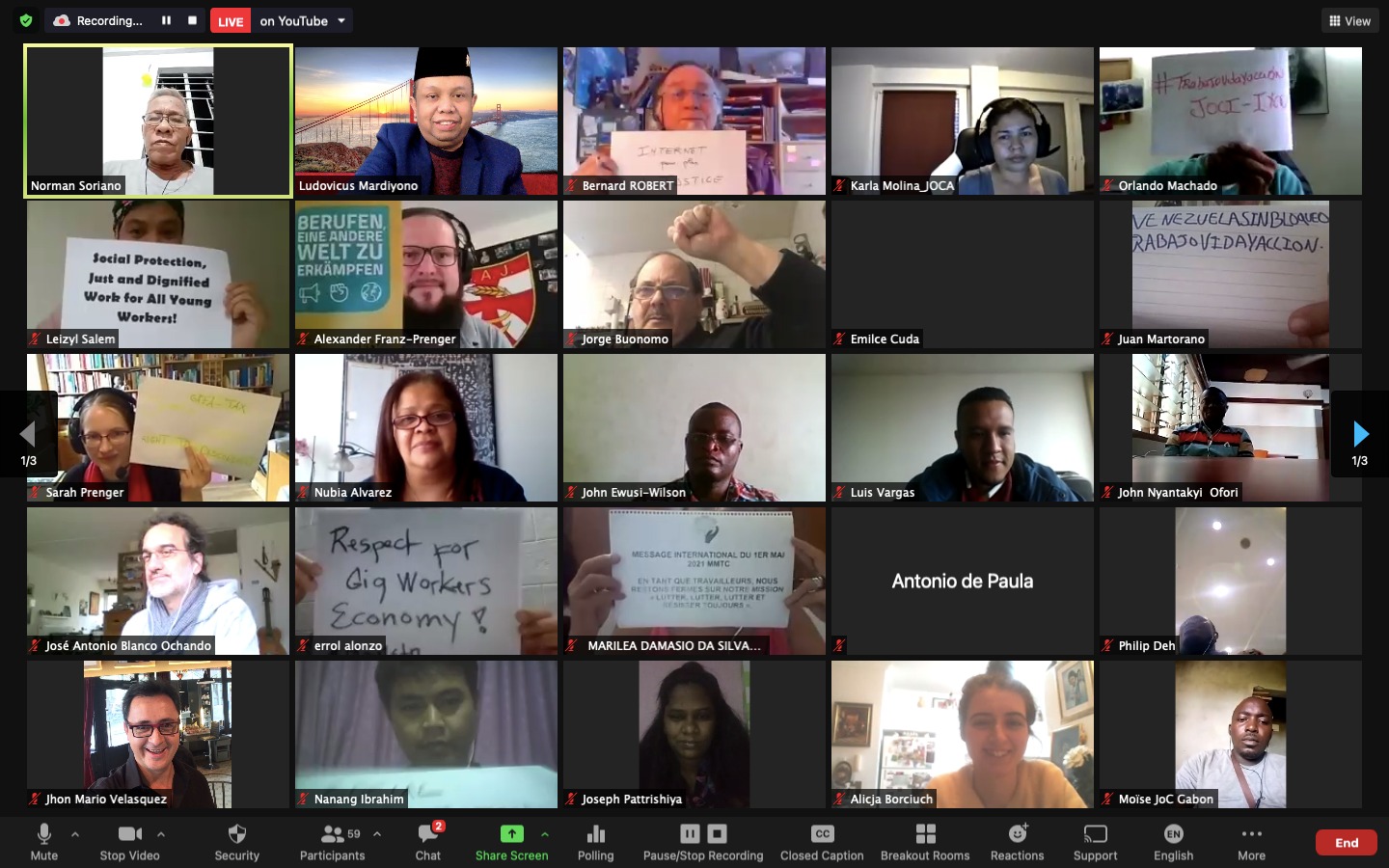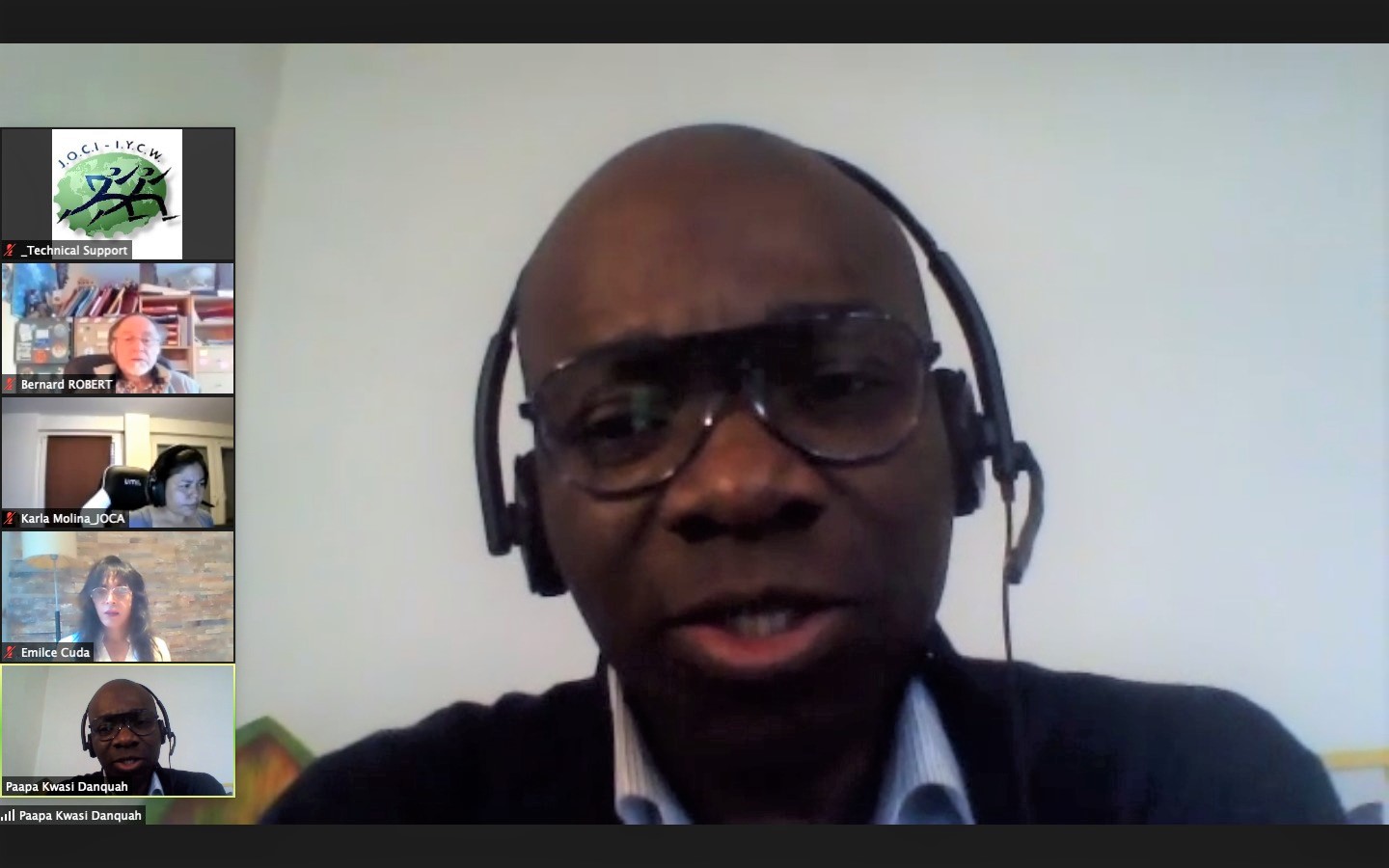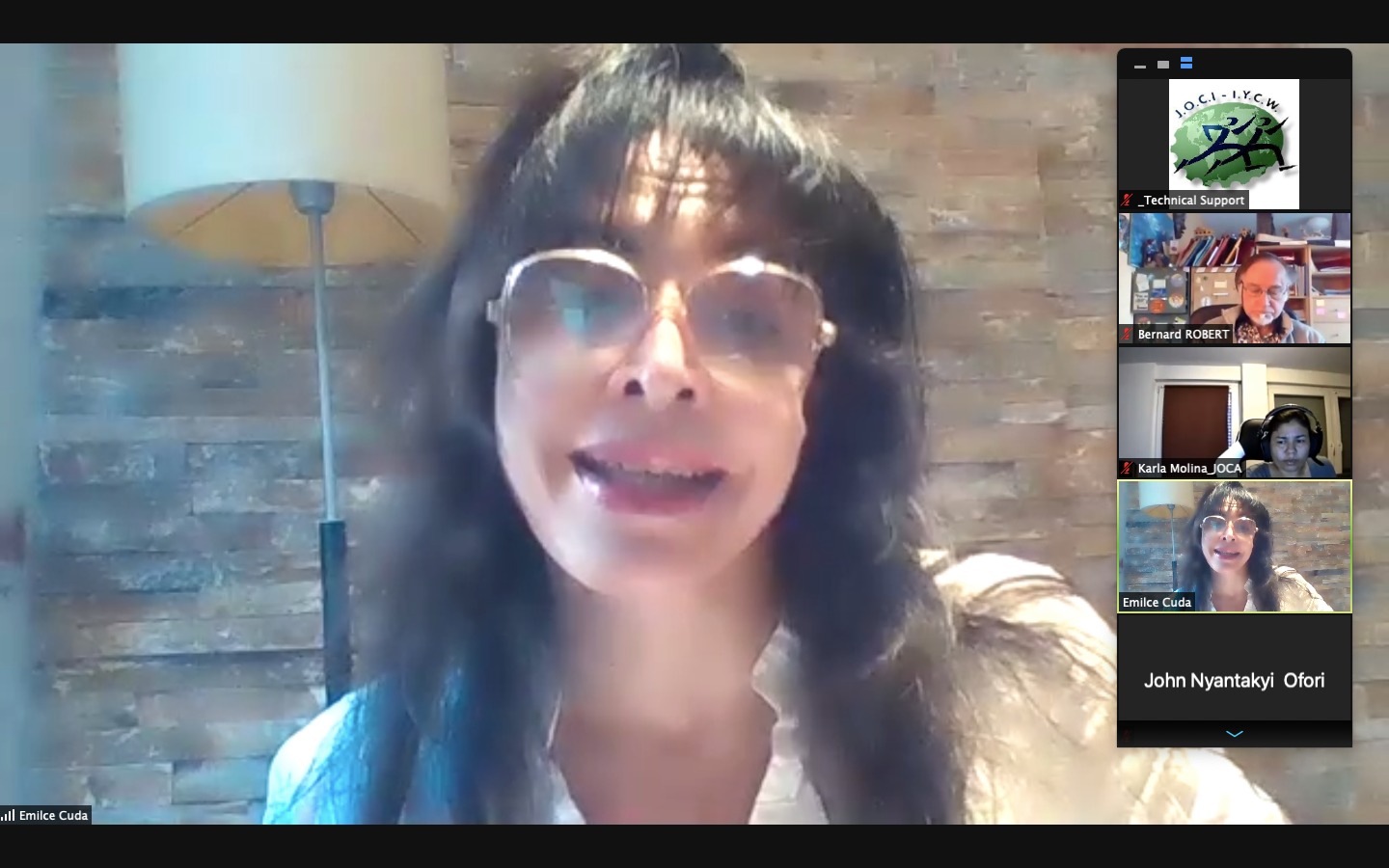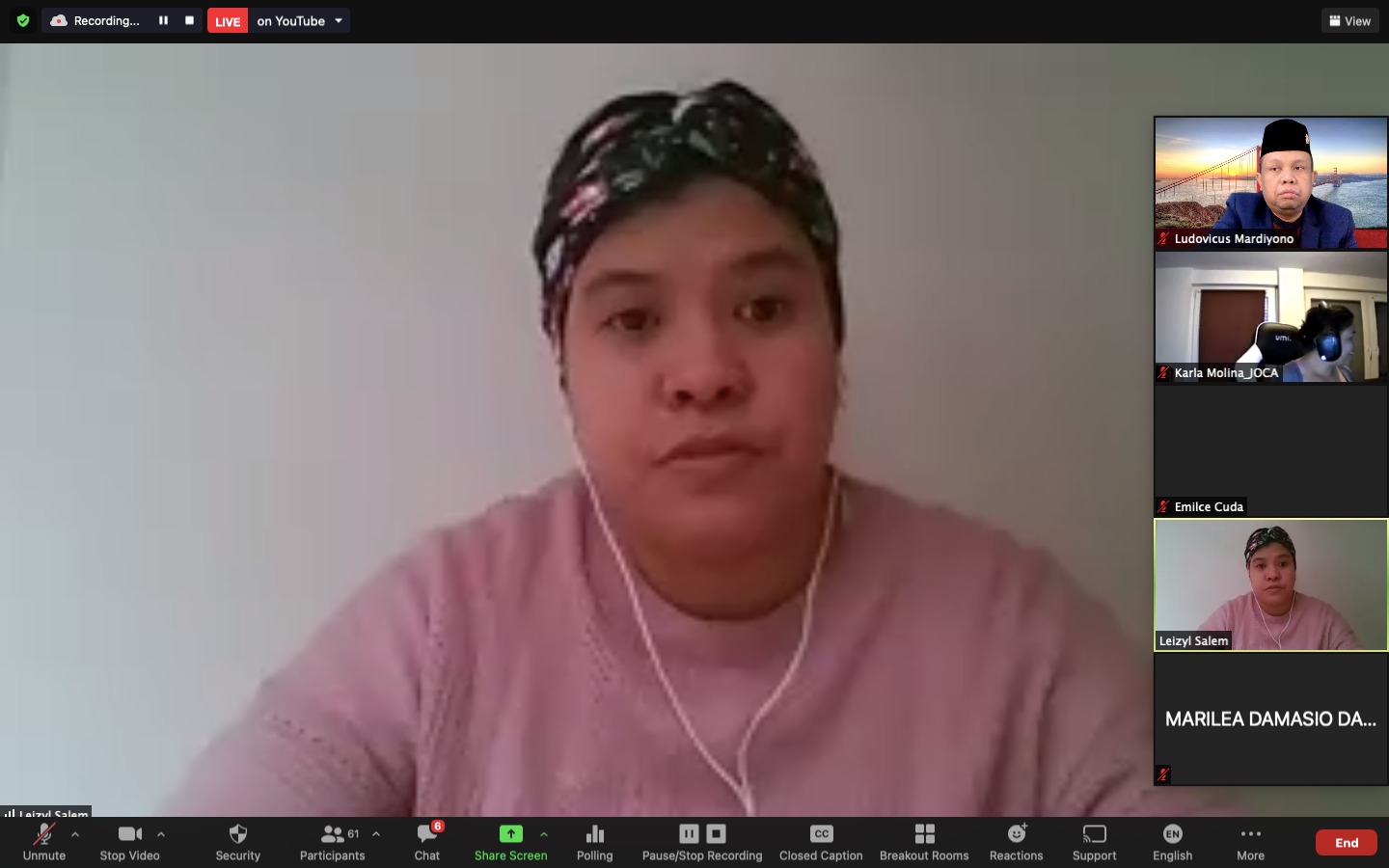
As part of the celebrations of the "International Week of Young Workers" and "May Day", the IYCW organized an online debate on the impact of digitalization on work, life and action on April 30.
With the participation of activists of the movement from different countries and continents, as well as a large number of representatives of social organizations, trade unions, people involved in international cooperation and former activists, the online debate was able to clarify, in its different dimensions, the impact of digitalization on young workers’ lives.
Based on the testimonies and life experiences collected and analyzed, the IYCW noted that young workers, most of whom are forced into precarious work, without contracts or with short-term contracts signed by temporary work agencies, or working in "maquilas", in the informal sector of the economy or in rural areas, as well as students and unemployed youth, do not benefit from the social and economic opportunities presented as advantages of digitalization.
Indeed, technology plays an extremely alarming role in their personal lives and in their social and professional lives. This is what we could understand from the very beginning of the activity. Several videos with testimonies of young workers, girls and boys, from different parts of the world (Nicaragua, Gabon, Germany, Ghana, Pakistan, Venezuela, Spain...) were projected in the first part of the online activity, expressing briefly what these young people impacted by new technologies are going through, the consequences on their daily lives and on their working conditions, as well as their dreams, demands and actions.
Those participants brought on the screen testimonies about the realities experienced not only by themselves, individually, but also by countless young people around the world. They noted, for instance, the importance of new technology for communication, but they also emphasized its impact on their free time, the superficiality of relationships via the social media, and the complex situation created by working from home, among other situations. All of these problems have been exacerbated with the outbreak of the Covid-19 pandemic.

In her speech, Sarah Prenger, the current IYCW President, emphasized the contribution of the testimonies and presented the analysis of the IYCW on this topic which the movement has been dealing with for a long time, in particular at the 2016 International Council. She introduced important reflections and questions for the debate: Why is it important to talk about digitalization? Who benefits from this way of organizing life, work and the world via the Internet? How is the distribution of resources organized? Concerning the non-respect of workers’ rights, of the freedom of association, of the right to organize... who is responsible? Young workers do not want to face these problems anymore and they question the governments, the lawmakers, as well as the institutions and organizations, and they make their voice, their demands and their dreams heard.
After the debate, Paapa Kwasi Danquah, head of the legal department of the International Trade Union Confederation (ITUC), presented the results of a national survey conducted by his union in Ghana. He noted the convergence between people’s previous input and testimonies and the results of the survey. According to the survey, it is a fact that young people are those who best adapt to new technology. However, the precariousness of work, and more specifically the precariousness resulting from digitalization, contributes to increasing the gap and inequalities suffered by the most vulnerable groups, among which young people are at the top of the list. In addition, many of these young people are forced to deal with other inequalities such as racial and gender inequalities. Paapa Kwasi drew attention to the fact that young people are fighting and have concrete demands. They claim a right to disconnect and a clear separation between private and professional life. He underlined that young people are not only fighting for a job, for the respect of their rights, for decent and fair working conditions and income, but also against carbon emissions and their implications on global warming and its consequences, because they clearly declare that “we want a job and a life for a sustainable planet.”

Paul H. Dembinski, professor at the University of Fribourg (Switzerland) and founding expert of the Observatoire de la finance, began his contribution by commending the testimonies which, in his view, “are clear examples of the daily life we live everywhere.” On the subject of digitalization, he said that a profound change has taken place in social life and even in geopolitical relations. Today, the leading companies on the financial market (Apple, Microsoft, Amazon, Facebook...) are no longer the same as in 2000 for example. He pointed out that there is an unequal distribution between the labor income and return on capital, resulting in the growth of informality (the underground economy) and the increase in job insecurity, which have become a “new normal”. In addition, there is a tendency to prioritize investments in new technology over workers. Thus, technology becomes dominant and freedoms are blatantly sacrificed.

For theologian Emilce Cuda, professor and researcher at the National University Arturo Jauretche in Argentina, and advisor to CELAM (Latin American Bishops Council), it is urgent to find new forms of organization because a great disorganization of work is underway and work is the fundamental element that organizes society. Regarding digitalization, she recalled the debate taking place at various levels, including governments, on the technical or ethical nature of the problems related to digitalization. Technological advances have always existed and will always exist with various impacts on society. However, the solution to the problems is ethical and therefore depends on us to ensure that technology is truly at the service of society as a whole and not just at the service of a few. She emphasized the importance of promoting actions with those who are unemployed and even less protected by social welfare systems. Organized youth are the hope for the future of work and society.

The encyclicals Laudato Si and Fratelli Tutti were present as a reference in the speeches of all panelists, in all the contributions and analyses. We are resolutely united with Pope Francis and call on the society to make justice, solidarity and respect for human dignity prevail.
To conclude the webinar, Leizyl Salem, the current IYCW treasurer, presented some of the main fundamental demands of the movement.
- Strong social protection based on solidarity is needed, including access to internet and electricity.
- It is important that policies and laws that defend and protect workers' rights in this digital revolution are updated and strengthened, especially regarding health and safety at work, labor inspection, the right to disconnect, clear regulation and organization of employer-employee relations, freedom of association and the right to organize in unions.
- It is also important that justice in the digital space is ensured not only for workers but also for citizens who must have control over their data.
- For youth organizations, as for other social organizations, the challenge is to continue to raise young people’s awareness, to organize them and inform them of their rights, so that they can become aware of the new phenomena of precariousness and exploitation to which they are exposed and of the advance of computerization and technology.

This is our responsibility as young workers and we assume it.
The IYCW would like to thank the IYCW witnesses, the panelists, all those involved in the technical management, the interpreters and ... all those who participated in the webinar.


 English
English  Español
Español  Français
Français